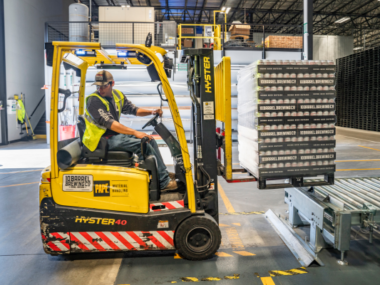If you’re dreaming of an exciting career in Canada, visa sponsorship jobs provide a golden gateway. Canadian companies are actively supporting foreign applicants by offering visa sponsorships, enabling seamless relocation. Whether you’re a seasoned professional, fresh graduate, or entry-level worker, these opportunities span various industries with competitive salaries and benefits.
Apply Now: Visa Sponsorship Jobs in Canada 2024 – Unlock Your Dream Career Abroad
Canada is a prime destination for individuals seeking lucrative job opportunities and a high standard of living. With its robust economy, multicultural society, and commitment to diversity, the country has become a top choice for skilled and unskilled workers globally. One of the most attractive features of working in Canada is the availability of Visa Sponsorship Jobs, making it easier for international applicants to relocate and secure employment.
Visa sponsorship jobs in Canada refer to employment opportunities where Canadian employers sponsor foreign workers’ work visas, enabling them to live and work legally in the country. These sponsorships are crucial for filling labor shortages across various industries, from skilled professions like engineering and IT to unskilled roles in agriculture and hospitality.
The Canadian government actively supports these initiatives through immigration programs such as the Temporary Foreign Worker Program (TFWP) and the Global Talent Stream (GTS). These programs streamline the process for employers to hire international talent while ensuring compliance with labor laws.
Why Choose Visa Sponsorship Jobs in Canada?
- Lucrative Salaries and Benefits
Visa sponsorship jobs often come with competitive salaries, bonuses, and comprehensive benefit packages. Skilled professionals in fields such as technology, healthcare, and finance can earn over $90,000 annually, while even entry-level roles offer fair compensation. - Pathway to Permanent Residency
Many visa-sponsored jobs serve as a stepping stone to Canadian permanent residency, allowing workers to establish long-term careers and settle with their families. Programs like the Express Entry System and Provincial Nominee Programs (PNP) facilitate this transition. - Diverse Job Opportunities
From IT specialists and engineers to farmworkers and truck drivers, visa sponsorship jobs cater to a wide range of skill levels. Employers in sectors like healthcare, construction, and agriculture are actively seeking international workers to address labor shortages. - Work-Life Balance
Canada is known for its excellent work-life balance, providing employees with benefits such as paid vacations, parental leave, and health insurance.
Industries Offering Visa Sponsorship Jobs in Canada
1. Technology and IT
Canada’s tech industry is booming, with cities like Toronto and Vancouver emerging as global tech hubs. Companies such as Shopify, Google Canada, and Amazon frequently hire foreign workers for roles like:
- Software Developers
- Data Scientists
- IT Consultants
These roles often include sponsorship packages covering relocation, housing assistance, and work visas.
2. Healthcare and Medical Professions
The healthcare sector in Canada faces significant labor shortages. Hospitals and clinics are actively recruiting international talent, offering visa sponsorship for positions such as:
- Registered Nurses
- Medical Technologists
- Healthcare Administrators
3. Agriculture and Farming
Canada’s agricultural sector relies heavily on foreign workers during peak seasons. Visa sponsorship is commonly available for jobs like:
- Farmworkers
- Fruit Pickers
- Livestock Handlers
4. Construction and Skilled Trades
With numerous infrastructure projects underway, the construction industry needs skilled and unskilled labor. Visa sponsorship is often extended for roles like:
- Carpenters
- Electricians
- General Laborers
5. Transportation and Logistics
The shortage of truck drivers in Canada has led to an influx of sponsorship opportunities in logistics. Companies like TransX and Canada Cartage sponsor drivers, offering competitive wages and benefits.
Top Companies Offering Visa Sponsorship in Canada
Several Canadian companies across various industries are actively offering visa sponsorship to attract international talent. Below is a curated list of top companies known for providing such opportunities:
- Google Canada
- Industry: Technology
- Overview: Located in Toronto, Google Canada boasts a diverse international workforce. The company offers roles in engineering, technology, sales, legal, and design. Google is committed to equal opportunity employment, valuing diversity in race, color, national origin, disability, and gender. Fluency in English or French and substantial experience enhance prospects for securing a position.
- Amazon Canada
- Industry: E-commerce and Technology
- Overview: Amazon has a significant presence in Canada, with numerous job openings in software development, sales, advertising, account management, database administration, and project/program/product management. The company is known for sponsoring visas for qualified international candidates.
- Royal Bank of Canada (RBC)
- Industry: Financial Services
- Overview: As one of Canada’s largest banks, RBC operates over 1,200 branches nationwide. The bank frequently offers visa sponsorships for various roles, including finance, technology, and customer service positions.
- Toronto-Dominion Bank (TD)
- Industry: Banking and Financial Services
- Overview: TD Bank is among North America’s leading banks, with a workforce exceeding 80,000 employees. The bank regularly has job openings suitable for foreign workers and provides visa sponsorship for roles in finance, technology, and more.
- Suncor Energy
- Industry: Energy
- Overview: Suncor Energy offers opportunities for new graduates, professionals, skilled tradespersons, and engineers. The company is known for facilitating visa sponsorships for qualified foreign workers in various positions.
- Parrish and Heimbecker, Limited (P&H)
- Industry: Agriculture and Food Processing
- Overview: P&H is a family-owned grain company headquartered in Winnipeg, Manitoba, with nearly 1,500 employees across divisions like feed milling, flour milling, grain marketing, and logistics. The company offers visa sponsorships for roles in these areas.
- PricewaterhouseCoopers (PwC) Canada
- Industry: Professional Services
- Overview: PwC Canada provides a variety of job openings across its offices, offering visa sponsorship for foreign workers in roles such as analysts, economists, technologists, and accountants.
- KPMG Canada
- Industry: Professional Services
- Overview: KPMG actively hires international applicants across its 46 Canadian locations, offering visa sponsorship, housing support, and comprehensive employee benefits.
- Toyota Motor Manufacturing Canada (TMMC)
- Industry: Automotive Manufacturing
- Overview: TMMC is known for its employee-centric policies and offers sponsorships for various technical and managerial roles.
- Coca-Cola Canada
- Industry: Food and Beverage
- Overview: The Coca-Cola Company provides job opportunities in manufacturing, sales, and distribution, along with visa sponsorship for qualified candidates.
These companies represent a fraction of Canadian employers committed to attracting global talent through visa sponsorship programs.
Benefits of Visa Sponsorship Jobs in Canada
Visa sponsorship jobs in Canada provide a golden opportunity for individuals aspiring to work in one of the world’s most desirable countries. These roles offer a host of benefits, making the process of relocating and settling in Canada smoother and more rewarding. Below is an in-depth look at the numerous advantages of securing a visa sponsorship job in Canada.
1. Streamlined Immigration Process
One of the most significant benefits of visa sponsorship jobs is the simplified immigration process. Employers take the lead in obtaining the necessary documents, such as the Labour Market Impact Assessment (LMIA), and guide workers through the work permit application. This reduces the stress and complexities often associated with moving to a new country.
2. Financial Security Through Competitive Salaries
Jobs with visa sponsorship often come with attractive compensation packages. Skilled workers, such as IT professionals, engineers, and healthcare practitioners, can expect salaries well above the national average. Even unskilled labor roles offer fair wages, ensuring financial stability.
For example:
- IT professionals may earn upwards of CAD 80,000 annually.
- Entry-level roles in agriculture or hospitality often start at CAD 15-20 per hour, with room for growth.
3. Relocation and Integration Support
Many companies offering visa sponsorship provide additional relocation benefits, such as:
- Travel expenses reimbursement
- Temporary housing support
- Cultural orientation programs
This ensures a seamless transition into Canadian society and helps workers quickly adapt to their new environment.
4. Access to Employee Benefits
Visa-sponsored employees are entitled to the same benefits as local workers, including:
- Health insurance: Coverage for medical expenses, prescriptions, and more.
- Paid time off: Vacation days, sick leave, and parental leave.
- Retirement savings plans: Contributions to pension schemes and retirement plans.
These benefits contribute to a higher quality of life and long-term financial planning.
5. Opportunity for Family Sponsorship
Certain visa sponsorship jobs allow workers to bring their families to Canada. Family members, such as spouses and children, may also receive work or study permits, creating opportunities for the entire family to thrive.
Example:
- Spouses can work under an Open Work Permit.
- Children can enroll in Canada’s world-class educational institutions.
6. Pathway to Permanent Residency
Visa sponsorship jobs often serve as a stepping stone to Permanent Residency (PR) in Canada. After gaining Canadian work experience, employees can apply for PR through programs like:
- Express Entry System
- Canadian Experience Class (CEC)
- Provincial Nominee Programs (PNP)
Permanent residency offers long-term stability, access to social benefits, and the freedom to live and work anywhere in Canada.
7. Exposure to a Global Work Environment
Working in Canada provides exposure to a multicultural and globally competitive work environment. Employees gain invaluable experience working alongside diverse teams, honing their skills, and building international networks.
8. Long-Term Career Growth Opportunities
Visa-sponsored jobs often come with opportunities for professional development. Employers invest in training programs, certifications, and career advancement for international employees, enabling them to reach their full potential.
Examples of support include:
- Technical skills training
- Leadership development programs
- Educational sponsorships for further studies
9. High Quality of Life
Canada consistently ranks among the top countries for quality of life, thanks to its excellent healthcare, education, and safety standards. Employees enjoy a balanced lifestyle, with access to clean environments, vibrant cities, and abundant recreational opportunities.
10. Job Security and Fair Employment Practices
Canadian labor laws are among the most progressive globally, ensuring that all workers, including those under visa sponsorship, are treated fairly. These laws guarantee:
- Equal pay for equal work.
- Safe working conditions.
- Protection against discrimination and exploitation.
11. Cultural Enrichment and Community Support
Canada’s welcoming and inclusive society makes it easier for newcomers to feel at home. Many communities offer support networks for immigrants, helping them navigate challenges and build meaningful connections.
12. Opportunity to Contribute to Canada’s Growth
By working in Canada, visa-sponsored employees become integral to the nation’s economic and social development. This creates a sense of purpose and fulfillment, as their contributions are valued and recognized.
Agencies And Organizations Responsible For Facilitating These Programs
1. Immigration, Refugees and Citizenship Canada (IRCC)
Overview:
The IRCC is the primary government agency managing immigration and citizenship matters in Canada. It oversees all visa applications, work permits, and permanent residency processes. Employers must comply with IRCC guidelines when sponsoring foreign workers.
Key Responsibilities:
- Processing work permit applications under the Temporary Foreign Worker Program (TFWP) and International Mobility Program (IMP).
- Ensuring compliance with labor laws and immigration policies.
- Issuing Labor Market Impact Assessments (LMIA) when required.
Website:
IRCC Official Website
2. Employment and Social Development Canada (ESDC)
Overview:
ESDC is a federal department that supports workforce development and ensures that foreign worker recruitment aligns with Canadian labor market needs.
Key Responsibilities:
- Issuing LMIA approvals, a crucial document for many visa sponsorship programs.
- Assessing whether hiring foreign workers negatively impacts the Canadian job market.
- Monitoring employer compliance with LMIA terms.
Website:
ESDC Official Website
3. Provincial Nominee Programs (PNPs)
Overview:
Each Canadian province or territory has its own PNP, which allows employers to sponsor foreign workers for immigration to meet specific regional labor needs.
Key Responsibilities:
- Offering employer-driven streams that help fast-track visa sponsorship for foreign workers.
- Collaborating with employers to nominate workers for permanent residency.
Examples of PNPs:
- Ontario Immigrant Nominee Program (OINP)
- British Columbia Provincial Nominee Program (BCPNP)
- Alberta Advantage Immigration Program (AAIP)
Website:
Canada PNP Overview
4. International Mobility Program (IMP)
Overview:
The IMP facilitates hiring foreign workers without an LMIA if the position aligns with Canada’s broader economic, cultural, or trade agreements.
Key Responsibilities:
- Administering visa exemptions like intra-company transfers and trade agreement-based work permits (e.g., under CUSMA).
- Allowing employers to bring in global talent faster for specific roles.
Website:
IMP Overview
5. Immigration Consultants and Legal Firms
Overview:
Certified immigration consultants and law firms help both employers and workers navigate the complexities of visa sponsorship. They work in tandem with government agencies to ensure compliance and expedite applications.
Examples:
- Canada Visa Services: Offers end-to-end support for job seekers and employers.
- Canadim: A boutique law firm specializing in immigration services.
- Y-Axis: Provides global immigration and job search assistance.
Key Role:
- Assisting with LMIA applications, PNP registrations, and work permit submissions.
- Offering representation in case of application refusals or legal disputes.
6. Employment Agencies and Job Portals
Some private recruitment firms specialize in connecting foreign workers with Canadian employers offering visa sponsorship.
Examples:
- Work Global Canada: Specializes in foreign worker recruitment for Canadian employers.
- Hays Canada: Provides international staffing solutions.
- Randstad Canada: Offers visa sponsorship job placements in sectors like IT, healthcare, and skilled trades.
Key Role:
- Matching qualified international candidates with sponsoring employers.
- Supporting candidates through visa processes and job orientation.
Note: Always ensure recruitment agencies are licensed and reputable to avoid scams.
7. Service Canada
Overview:
Service Canada works with ESDC to process LMIA applications and ensure employers meet the legal requirements for hiring foreign workers.
Key Responsibilities:
- Verifying employer eligibility for the LMIA process.
- Ensuring fair treatment and wages for foreign workers.
Website:
Service Canada
8. Settlement Agencies and Nonprofits
Overview:
Many nonprofit organizations provide support services to visa-sponsored workers once they arrive in Canada.
Examples:
- Immigrant Services Calgary
- MOSAIC (in British Columbia)
- Access Alliance (in Ontario)
Services Offered:
- Assistance with housing, healthcare, and social services.
- Language training and cultural orientation programs.
Requirements For Foreign Workers Seeking Visa Sponsorship Jobs
The requirements for jobs involving visa sponsorship in Canada vary depending on the role, industry, and the specific immigration program. However, there are common criteria that both the employer and the foreign worker must meet to ensure compliance with Canadian immigration laws.
1. Skills and Qualifications
Foreign workers must meet the qualifications and experience required for the job:
- Educational credentials relevant to the role.
- Work experience that aligns with Canadian standards for the occupation.
- Proof of professional certifications or licenses (if required, such as for healthcare professionals or engineers).
2. Language Proficiency
Foreign workers may need to demonstrate proficiency in English or French, depending on the job and location.
- Language tests like IELTS (for English) or TEF (for French) may be required.
- Minimum language benchmarks depend on the job level under the National Occupational Classification (NOC) system.
3. Work Permit Eligibility
To be eligible for a Canadian work permit, the applicant must:
- Have a valid job offer supported by an LMIA (if applicable).
- Meet health and security requirements, including a medical examination and police clearance.
- Provide proof of financial means to support themselves (if required).
4. Educational Credential Assessment (ECA)
For jobs requiring specific educational qualifications, workers may need an ECA to verify that their credentials are equivalent to Canadian standards.
5. Valid Passport and Travel Documents
Applicants must have:
- A valid passport with sufficient validity for the duration of the work permit.
- Additional travel documents, such as visas for transit countries (if applicable).
6. Personal Characteristics
- A clean criminal record (verified through a police certificate).
- Good health, as demonstrated by a medical exam (for certain roles).
- Willingness to adhere to Canadian laws and immigration policies.
Certain industries in Canada have additional requirements:
Healthcare Professionals
- Registration with provincial regulatory bodies (e.g., College of Nurses of Ontario for nurses).
- Proof of medical qualifications and experience.
IT and Technology Roles
- Demonstrated expertise in programming languages, software, or system management.
- Portfolio showcasing previous projects or certifications (e.g., AWS, Microsoft, Google).
Skilled Trades (e.g., electricians, welders)
- Trade certifications or provincial red seal endorsements.
- Experience working under similar codes and standards.
Agriculture and Seasonal Workers
- Physical fitness and ability to work long hours in demanding conditions.
- Previous experience in farming or agricultural practices (preferred but not always required).
Additional Documents Required for Application
Workers applying for visa sponsorship jobs must typically provide:
- Resume/Curriculum Vitae (CV): Detailed and tailored to Canadian standards.
- Proof of Funds: Financial documents to show they can support themselves temporarily.
- Reference Letters: From past employers to verify work experience.
- Work Portfolio: For creative roles or specialized industries.
- Marriage or Birth Certificates (if applicable): For accompanying family members.
For Accompanying Family Members (if allowed)
Workers under certain visa sponsorship programs can bring their family members:
- Spouse or Partner: May be eligible for an open work permit.
- Children: Can study in Canada with a study permit.
Types of Visa Sponsorship Jobs in Canada
1. Skilled Jobs with Visa Sponsorship
These roles often demand advanced education or industry experience, with top-paying positions in:
- Information Technology (IT): Developers, data scientists, and cybersecurity experts are highly sought after, earning upwards of $100,000 annually.
- Healthcare Professionals: With rising demand, doctors and nurses are being hired at record salaries.
2. Unskilled Jobs with Visa Sponsorship
Opportunities abound for workers without formal education, including:
- Farmworkers and Fruit Pickers: Agricultural roles often provide seasonal work and visa sponsorship, ensuring steady income.
- Truck Drivers: Logistics companies offer visa support for drivers, along with salaries exceeding $60,000 annually.
3. Seasonal Work Opportunities
Industries like tourism and agriculture provide temporary roles with attractive benefits and flexible schedules.
Skilled Jobs with Visa Sponsorship in Canada
Canada’s economy is in constant need of skilled professionals. Some of the prominent sectors offering skilled jobs with visa sponsorship include:
- Information Technology (IT): The tech industry in Canada is thriving, with cities like Toronto and Vancouver emerging as tech hubs. Companies such as Shopify, Amazon, and IBM frequently look for software developers, data scientists, and IT consultants. These roles often come with competitive salaries and comprehensive benefits, making them attractive to foreign applicants.
- Engineering: With infrastructure projects on the rise, engineers in civil, mechanical, and electrical fields are in high demand. Firms like SNC-Lavalin and Kiewit are notable employers that sponsor foreign engineers, often offering relocation packages and professional development opportunities.
- Healthcare: Canada faces a growing demand for healthcare professionals, including nurses and doctors. Institutions such as Toronto General Hospital and BC Children’s Hospital often recruit internationally to fill critical vacancies. Many of these roles come with sponsorship options, ensuring that foreign-trained professionals can begin their careers in Canada.
- Education: There is a significant need for teachers in various subjects, especially STEM (Science, Technology, Engineering, and Mathematics). School boards across Canada, including those in Ontario and British Columbia, actively seek qualified teachers from abroad, providing sponsorship as part of their recruitment process.
Unskilled Jobs with Visa Sponsorship in Canada
While skilled positions are often highlighted, unskilled jobs are equally vital to the Canadian economy. These roles provide opportunities for individuals without extensive formal education:
- Agricultural Jobs: Canada’s agricultural sector relies heavily on foreign labor during peak seasons. Positions such as farmworkers, fruit pickers, and general laborers are in demand. Organizations like the Ontario Fruit & Vegetable Growers’ Association often sponsor temporary foreign workers, helping to fill labor shortages during harvest periods.
- Construction Laborers: The construction industry is booming across Canada, necessitating an influx of laborers and tradespeople. Companies like PCL Construction and EllisDon are known for hiring international workers and offering sponsorship, especially for skilled trades like carpentry and plumbing.
- Truck Drivers: With a shortage of qualified drivers, logistics companies are increasingly turning to international talent. Organizations such as TransX and Canada Cartage provide visa sponsorship for truck drivers, offering competitive wages and benefits.
- Warehouse and Factory Workers: Many manufacturing companies, including General Motors and Bombardier, require assembly line workers and warehouse staff, frequently offering sponsorship to meet their workforce needs.
How to Find Companies in Canada Offering Visa Sponsorship
1. Research Industries in Demand
Certain industries in Canada are more likely to sponsor foreign workers due to labor shortages. Focus on:
- Healthcare: Nurses, doctors, caregivers, and allied health professionals.
- IT and Technology: Software developers, data analysts, cybersecurity experts, and AI specialists.
- Engineering and Skilled Trades: Civil engineers, electricians, welders, and mechanics.
- Agriculture: Farmworkers, harvesters, and other seasonal roles.
- Hospitality: Chefs, hotel managers, and food service workers.
Research Canada’s National Occupation Classification (NOC) to find roles with higher sponsorship likelihood.
2. Use Job Portals Featuring Visa Sponsorship Roles
Several job portals specialize in roles that offer visa sponsorship:
General Job Portals
- Job Bank Canada: Canada’s official government job site often lists LMIA-approved roles.
- Indeed Canada: Search for “visa sponsorship” or “LMIA-approved” in the keywords section.
- LinkedIn: Use advanced search filters to find companies hiring foreign workers.
Specialized Job Sites
- Moving2Canada: Focuses on roles suitable for immigrants.
- Workopolis and Monster: Includes listings that specify work permit support.
3. Look for Global Companies Operating in Canada
Large multinational corporations often hire foreign workers due to their global workforce strategies. Examples include:
- IT and Technology: Google, Amazon, Microsoft, Shopify.
- Healthcare: Medtronic, McKesson, Sunrise Senior Living.
- Engineering and Manufacturing: Bombardier, SNC-Lavalin, Pratt & Whitney.
Search their Canadian career pages for job listings and sponsorship policies.
4. Leverage Canadian Immigration Programs
Certain immigration pathways can direct you to companies offering sponsorship:
Provincial Nominee Programs (PNPs)
PNPs allow provinces to nominate workers for permanent residency, often in collaboration with sponsoring employers. Popular provinces include:
- British Columbia
- Ontario
- Alberta
- Manitoba
Global Talent Stream (GTS)
This program fast-tracks visa processing for highly skilled tech and engineering roles. Companies hiring under GTS are LMIA-exempt and likely to sponsor visas.
5. Network with Professionals in Canada
Networking increases your chances of finding hidden job opportunities.
- LinkedIn: Connect with HR professionals, recruiters, and employees of target companies.
- Professional Associations: Join industry-specific associations in Canada to meet potential employers.
- Alumni Networks: Reach out to alumni from your university who work in Canada.
- Virtual Job Fairs: Attend international hiring events targeting foreign workers.
6. Contact Recruitment Agencies
Recruitment agencies specializing in placing foreign workers can connect you with companies offering sponsorship:
- Airswift: Focuses on engineering and energy roles.
- Hays Recruitment: Covers diverse industries, including IT and finance.
- Global Hire: Specializes in hiring healthcare and skilled trades workers.
- HireImmigrants.ca: Supports newcomers in finding Canadian jobs.
7. Search for LMIA-Approved Employers
Employment and Social Development Canada (ESDC) maintains a list of employers with positive LMIAs. This document shows the company is authorized to hire foreign workers.
- Visit the Job Bank Canada LMIA database and filter results by occupation and location.
8. Explore Internships and Co-op Opportunities
Many companies sponsor visas for high-performing interns. Look for internships with:
- Tech Giants: Google, Microsoft, or Shopify’s Canadian offices.
- Government Programs: Canada’s post-secondary co-op placements often lead to sponsorship.
9. Use Social Media and Forums
Online platforms can provide insider information and job leads:
- Join groups on Facebook, Reddit and Telegram focused on Canadian immigration and jobs.
- Follow hashtags like #CanadaVisaSponsorship and #JobsInCanada on Twitter and Instagram.
10. Tailor Your Application for Sponsorship Jobs
When applying, make it easy for employers to sponsor you by:
- Highlighting your skills, experience, and certifications relevant to the job.
- Mentioning your willingness to comply with Canadian immigration procedures.
- Attaching language proficiency test results (e.g., IELTS) and other required documents.
11. Consult Immigration Professionals
Immigration consultants or lawyers can help you identify companies more likely to sponsor visas. They can also guide you through job-specific programs like:
- Express Entry Programs (for skilled workers).
- Atlantic Immigration Program (AIP) (for jobs in Atlantic provinces).
12. Volunteer or Freelance as a Foot in the Door
Freelancing or volunteering for Canadian companies remotely can lead to full-time job offers with sponsorship once you’ve demonstrated your skills.
13. Stay Updated on Trends and Opportunities
- Subscribe to newsletters from Canadian immigration websites and job portals.
- Monitor labor market reports to identify high-demand sectors.
Provinces in Canada Offering Visa Sponsorship Jobs
Canada’s diverse economic landscape offers numerous opportunities for foreign workers seeking visa sponsorship. Certain provinces have established programs and labor market needs that make them particularly favorable for international applicants.
Ontario – Financial and Tech Hub
Ontario, Home to cities like Toronto and Ottawa, Ontario boasts a robust economy with a high demand for skilled professionals in sectors such as technology, finance, and healthcare.
The Ontario Immigrant Nominee Program (OINP) actively recruits foreign workers to meet labor market needs. The Human Capital Priorities Stream, for instance, targets skilled workers in specific occupations.
British Columbia – Growing Tech Ecosystem
With Vancouver as a thriving tech hub, BC offers roles in software development, marketing, and engineering with visa sponsorship. Vancouver is a central tech hub, there’s a significant demand for IT professionals, engineers, and tech-related roles.
The British Columbia Provincial Nominee Program (BC PNP) offers streams like the Skills Immigration and Express Entry BC, facilitating faster immigration pathways for eligible candidates.
Alberta – Energy and Engineering Jobs
Alberta’s booming oil and gas sector offers high-paying jobs for engineers and skilled laborers, with visa sponsorship included. Known for its oil and gas industries, Alberta requires skilled tradespeople, engineers, and professionals in related fields.
Alberta Advantage Immigration Program (AAIP): This program provides various streams for workers, including those with job offers and those in high-demand occupations.
Nova Scotia – Healthcare and Education
Nova Scotia, a province in eastern Canada, is experiencing a significant demand for healthcare professionals, educators, and skilled tradespeople. To address these needs, the Nova Scotia Nominee Program (NSNP) offers various immigration streams, including the Nova Scotia Demand: Express Entry stream, which targets candidates with skills in demand within the province.
Manitoba
Manitoba’s economy is significantly bolstered by its agriculture, manufacturing, and transportation sectors, creating a consistent demand for skilled workers in these areas. To address this need, the Manitoba Provincial Nominee Program (MPNP) offers pathways for skilled workers, including those with job offers in the province.
Saskatchewan
Prince Edward Island (PEI)
Prince Edward Island (PEI) is a picturesque Canadian province known for its thriving tourism, agriculture, and fisheries sectors, which are essential to the local economy. As a result, PEI regularly seeks skilled workers to fill positions in these industries, offering unique opportunities for both international professionals and skilled laborers.
Take the Leap – Apply Now for Visa Sponsorship Jobs in Canada
Canada offers an unparalleled opportunity for individuals seeking to build successful careers while enjoying a high quality of life. With thousands of job openings across various sectors and generous visa sponsorship programs, the time to take action is now.
Start your journey today by researching opportunities, crafting a compelling resume, and applying to roles that align with your skills and aspirations.
How to Apply for Visa Sponsorship Jobs in Canada
Applying for visa sponsorship jobs in Canada involves several key steps to ensure a successful transition to working and living in the country.
- Research Companies: Identify companies that have a history of sponsoring foreign workers. Focus on industries where you have experience or qualifications.
- Create a Canadian-Style Resume: Tailor your resume to meet Canadian standards, emphasizing relevant skills and experience. Include specific accomplishments and metrics where possible.
- Apply Through Job Portals: Utilize platforms like Job Bank, Indeed, and company websites to submit your applications. Ensure your application is tailored to each job description.
- Prepare for Interviews: Familiarize yourself with common interview questions and practice articulating your experience and skills. Employers may assess both technical and soft skills.






